#koreanlangblr
Explore tagged Tumblr posts
Text
Happy Pride! Let’s look at some Korean LGBT+ Terms

엘지비티: LGBT 레즈비언: Lesbian 게이: Gay 양성애: Bisexual 트랜스젠더 (or 트렌스): Transgender 퀴어: Queer 인터섹스: Intersex 무성애자: Asexual 퀘스처닝: Questioning 범성애자: Pansexual 얼라이: Ally 바이젠더: Bigender 에이젠더: Agender 논바이너리: Nonbinary 이성애: Straight
트랜스여성: Trans woman 트랜스남성: Trans man 씨스젠더: Cisgender
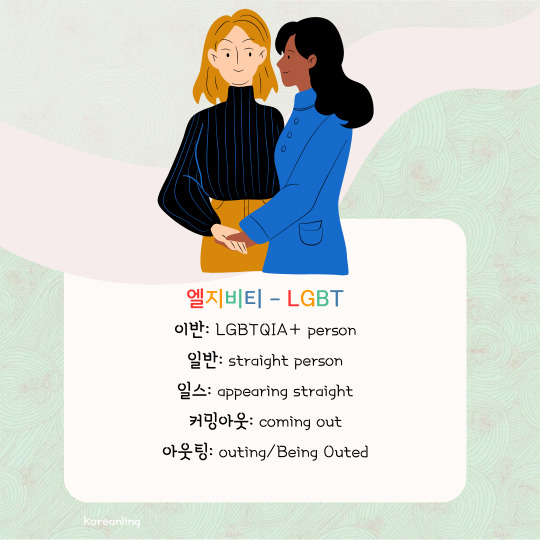
Some Quick LGBT Slang
이반: LGBTQIA+ person (이반인 “abnormal people” – note: not derogatory lgbt claimed this themselves) 일반: straight person (일반인 “normal people”) 일스: appearing straight (short for “일반 스타일 “normal style”) 커밍아웃: coming out 아웃팅: outing/being outed – someone exposes you and forces you out
123 notes
·
View notes
Text
list of korean language youtubers you might have not heard of!
they all have about 5-40k of followers, they were a huge help for me.
11 notes
·
View notes
Text
Story Time! (Pt. 3)
Gather round for another language fail from yours truly! Here's a fun little dictation tidbit from my language exchange session today.
What my LE partner said:
그녀는 마음이 관대하다. (She has a generous heart)
What I wrote:
그년은 마음이 관대하다. (That b*tch has a generous heart.)
What I learned today:
그녀 = she
그년 = that b*tch
I really need to work on spelling and vocab

49 notes
·
View notes
Text
5 Minutes of Korean - Day 9
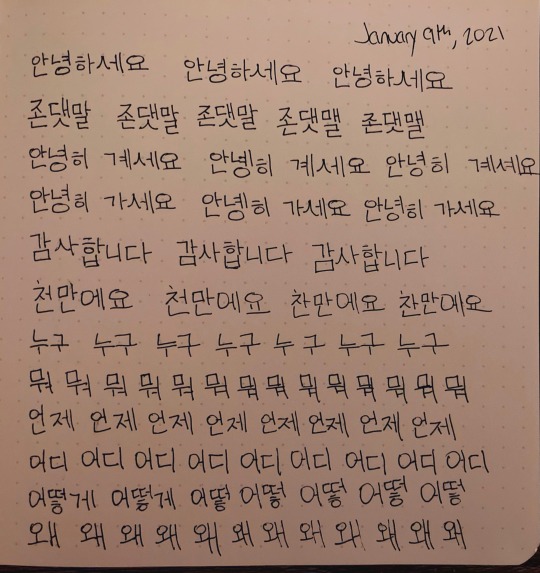
Handwriting practice with all the words I’ve learned so far
안녕하세요 - Hello
존댓말, 안녕히 계셔요, 안녕히 가셔요 - Goodbye
감사합니다 - Thank you
천만에요 - You’re welcome
누구 - Who
뭐 - What
언제 - When
어디 - Where
어떻게 - How
왜 - Why
#korean#korean learning#korean language#korean lesson#korean langblr#koreanlearning#koreanlanguage#koreanlesson#koreanlangblr#hangul#langblr#language study#language studying#language lesson#languagestudy#languagestudying#languagelesson#beginner korean#beginnerkorean#studyspo#studyinspo#study inspiration#studyinspiration
34 notes
·
View notes
Photo

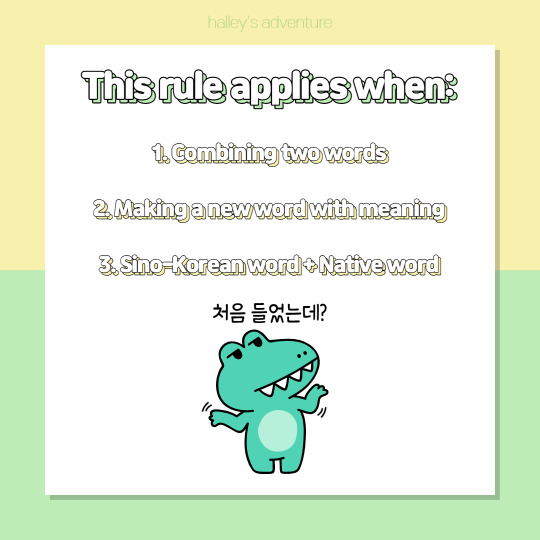
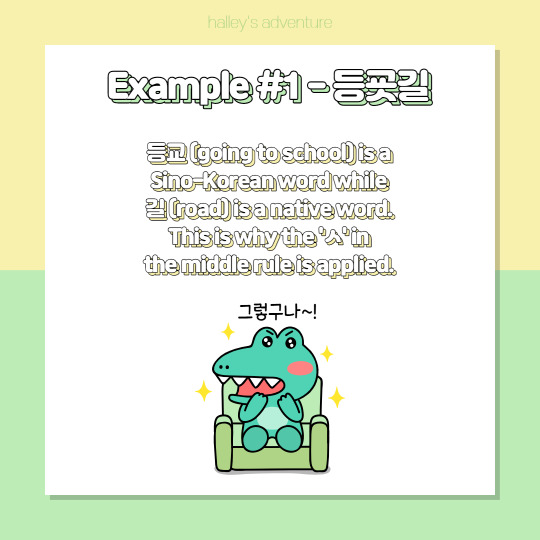
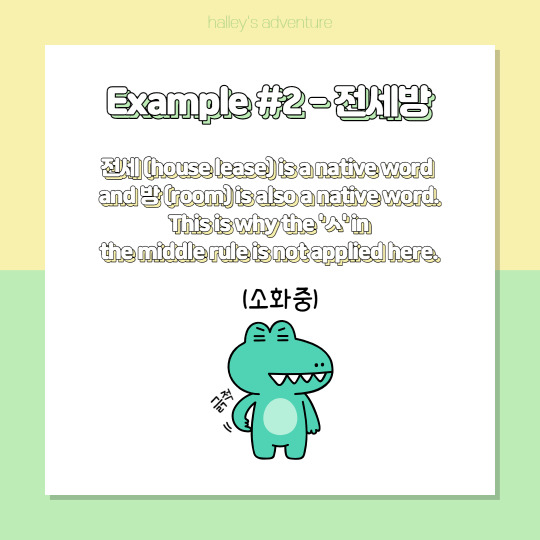
To be honest, I had never heard of this rule until I accidentally found out about it while browsing for a new house.
Let me know if the lesson is helpful!
And follow me if you want more Korean lessons like this~!
#korean#korean language#korea#study korean#korean studies#koreanlangblr#langblr#studyblr#studyinspo#langinspo#koreaninspo#korean vocab#korean vocabulary#korean language rule#vocabulary#language rule#korean english#korean to english#english to korean#beginner korean#intermediate korean#advanced korean#topik#topik test#topik exam#study topik#study for topik#topik study#korean lesson#korean students
153 notes
·
View notes
Text
if you're a korean langblr pls reblog! i need all the help i can get lol and would love to make some new friends :)
1 note
·
View note
Note
Just wondering what spelling mistakes you see beginners use a lot
Oh wow! This is a cool question. This is by no means every beginner, but some common errors I see are:
1. 안영하세요
This doesn’t bother me as much as it used to because it sounds really similar.
2. ‘VERB’ㄹ/을 거에요
It is more natural to SAY it like this, but the correct spelling is “거예요”. Before anyone says differently, remember that 거예요 is from 것이다 and how do we conjugate 이다? (hint: check this ask out if you don’t know - you also drop the “ㅅ” when conjugating)
3. 맡다
Ironically enough, a lot of the people I tutor will get this wrong when I test their listening skills. The correct verb is 맞다 and it means to be correct but the sound change makes the “ㅈ” sound sort of like a “ㅌ”
4. 오랫만이에요
Sometimes, like number 2, it can sound more natural to say it like this, however, the correct spelling is 오랜만이에요. (this is not the same for 오랫동안)
5. 감사함니다
Yes, it is natural to nasalize the “ㅂ” to a “ㅁ”, but it isn’t correct in spelling. Being familiar with sound change will help you sound more fluent!
6. 되요
This is kind of a little tricky, but when you conjugate 되다 it becomes 돼요.
7. 쉬하다
This means to pee. Yeah.
If you’re looking to say “rest” it’s 쉬다.
That’s really it for the spelling errors that I see. Some are funny and I get a good laugh, but thanks for the ask! Happy Learning :)
~ SK101
#ask#korean#korean language#korean common mistakes#korean funny#korea#korean ask#korean blog#kblr#koreanlangblr#frequently asked questions#funny
52 notes
·
View notes
Text
Lesson 18: BT21 Where you AT? (Location marking particles)
A short lesson!
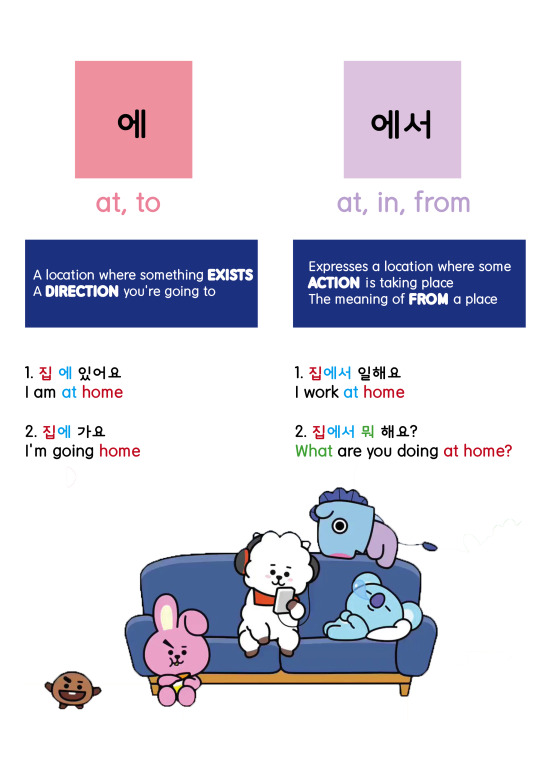
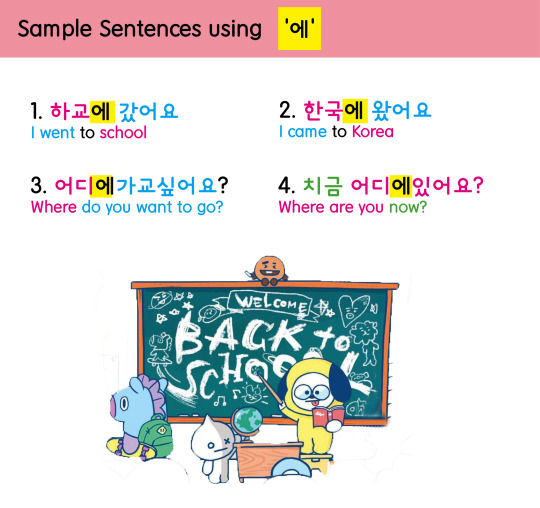

Also a list of helpful verbs from the TTMIK LESSON
오다 [o-da] = to come 왔어요 [wa-sseo-yo] = came / to have come
있다 [it-da] = to be, to exist 있었어요 [i-sseo-sseo-yo] = was / to have been
보다 [bo-da] = to see 봤어요 [bwa-sseo-yo] = saw / to have seen
하다 [ha-da] = to do 했어요 [hae-sseo-yo] = did / to have done
#TTMIKBeginner#BT21#ttmik#learn korean#languages#language#korean#korean studyblr#koreanstudyblr#korean langblr#koreanlangblr#koreanstudynotes#korean study notes#korean vocab#korean grammar#korean study blog#location#location particles#BTS#bt21 cooky#bt21 rj#bt21 tata#bt21 chimmy#bt21 shooky#bt21 koya#bt21 mang
429 notes
·
View notes
Text
Me studying Korean:

Me speaking Korean:
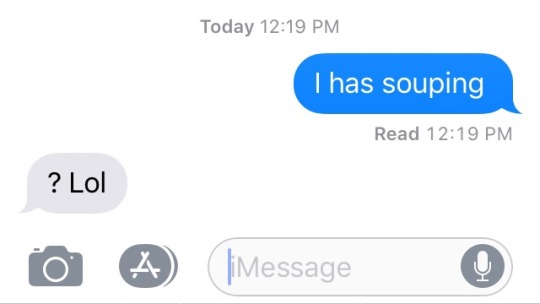
151 notes
·
View notes
Text

Random Korean Vocab #2: Colors
주항색🧡 Orange
노란색📒 Yellow
파란색💎 Blue
빨간색🍎 Red
초옥색🌵 Green
검정색♟Black
갈색👜 Brown
분홍색🌸 Pink
보라색☂️ Purple
흰색☁️ White
색깔- Color
#koreanlangblr#koreanlanguage#langblr#languagelearning#studykorean#studykoreanwithme#studying korean#koreanlanguageblog
1 note
·
View note
Text
🖇 Korean common phrases (aleatory)

- 도와줘 (dowajueo) : Help me (informal)
-또? / 다시? (ddo/dashi) : again? (informal) / (formal)
- 니가 문데? (niga mwonde?) : who do you think you are? (informal-slang)
- 모르겠어 (moreugesseo) : I don’t know (informal)
-배째! (ppaejjae) : sue me! (informal-slang)
- 피곤해 (pigonhae) : I’m tired (informal)
- 너나 잘 해 (neona jal hae) : mind your own business (informal-slang)
#hgpost#korean slang#korean vocab#korean langblr#koreanlangblr#koreangrammar#koreanvocab#koreanblr#korean resources#korean learning#korean language#hangugeo
262 notes
·
View notes
Text
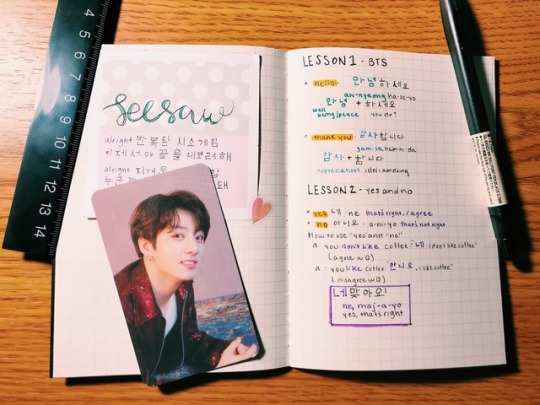
🥟🥟
#kawaii#cute#kpop#yay#aesthetic#bts#korea#korean#korean notebook#korean journal#koreanlangblr#korean langblr#korean language#jungkook
10 notes
·
View notes
Photo
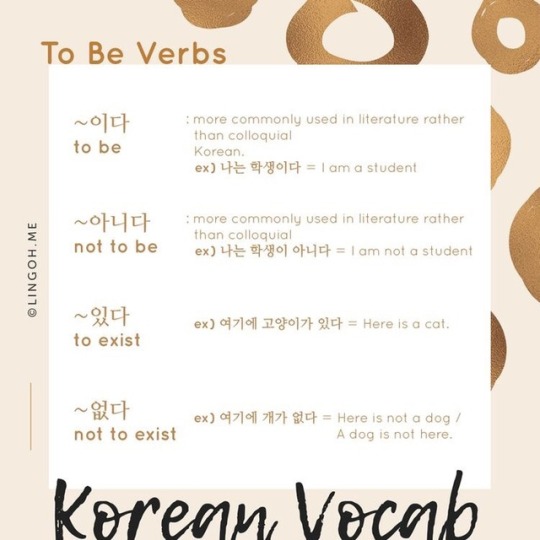
"to be" verbs
199 notes
·
View notes
Text
Current Language List
Alright lets see if i can actually succeed and persue these languages
[Priorities]
•Spanish
•French(for school)
-
-
[For fun and interest]
•Greek
•Arabic
-
-
[Maybe]
•Latin
•German
•Polish(again)
•Norwegian
•Romanian(again)
•Portuguese
•Korean
•Japanese
-
-
[Languages i speak]
•Tagalog
•English
-Im currently focusing on greek but i go from one language to another- im not in a rush to learn these more just my genuine interest in languages, there are so much languages here but i like to just add them here as maybe a goal-
#langblr#language#romanian#greek#english#romanianlangblr#greeklangblr#greece#korea#koreanlangblr#hangul#japanese#learningjapanese#learninggreek#learningspanish#spanish#learninglanguages#languages#tagalog#frenchlangblr
5 notes
·
View notes
Text
5 Minutes of Korean - Day 3
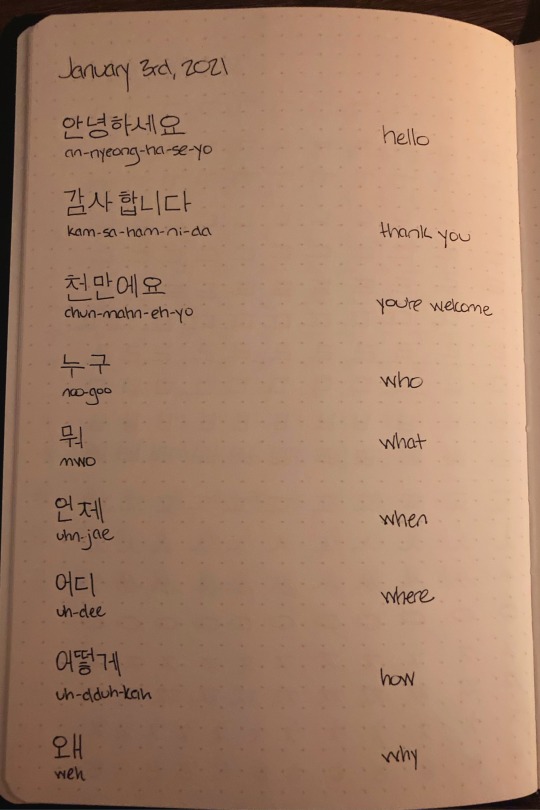
Short list of easy words!
#korean#korean language#korean learning#korean lesson#beginner korean#koreanlangblr#koreanlanguage#koreanlearning#koreanlesson#beginnerkorean#studyblr#studyspo#studyinspo#langblr#language learning#language study#language
23 notes
·
View notes
Text
TOPIK Studying with Halley D-38
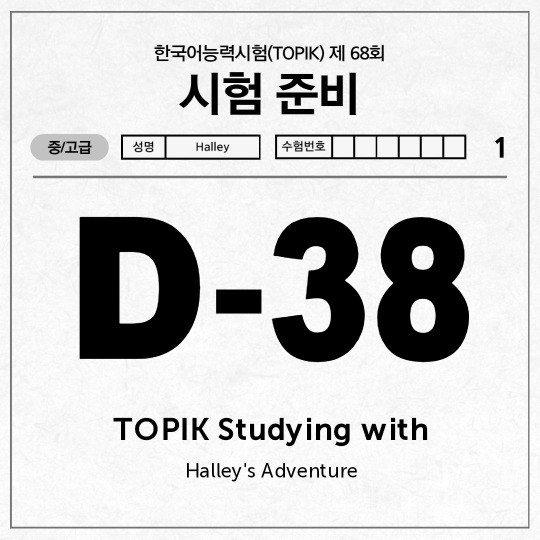
I want to focus on reading part today but the only way to nail the reading part is to know a ton of grammars and vocabulary, which is the same thing I post almost every day. But today, I’m switching it up a bit by focusing only on grammar.
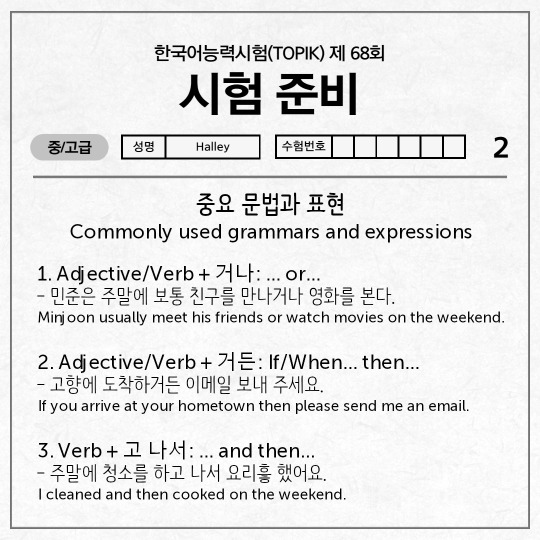
1. Adjective/Verb + 거나: ... or... - 민준은 주말에 보통 친구를 만나거나 영화를 본다. Minjoon usually meets his friends or watch movies on the weekend.
2. Adjective/Verb + 거든: If/When... then... - 고향에 도착하거든 이메일 보내 주세요. If you arrive at your hometown then please send me an email.
3. Verb + 고 나서: ... and then... - 주말에 청소를 하고 나서 요리흫 했어요. I cleaned and then cooked on the weekend.
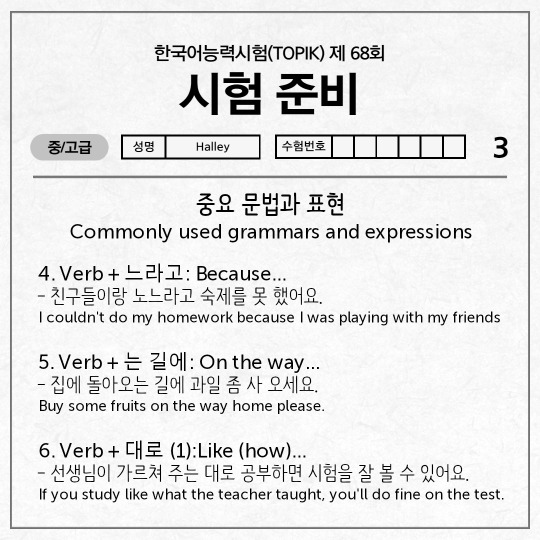
4. Verb + 느라고: Because... - 친구들이랑 노느라고 숙제를 못 했어요. I couldn't do my homework because I was playing with my friends
5. Verb + 는 길에: On the way... - 집에 돌아오는 길에 과일 좀 사 오세요. Buy some fruits on the way home, please.
6. Verb + 대로 (1):Like (how)... - 선생님이 가르쳐 주는 대로 공부하면 시험을 잘 볼 수 있어요. If you study like what the teacher taught, you'll do fine on the test.

7. Verb + 대로 (2): As soon as... - 결과를 아는 대로 알려 드리겠습니다. As soon as I know the result, I'll let you know.
8. Adjective + (으)ㄴ 대신에 / Verb + 는 대신에: Instead... - 화를 내는 대신에 월터는 두드림으로써 응답했다. Instead of getting mad, Walter just knocked back.
9. Adjective + (으)ㄴ 데다가 / Verb + 는 데다가: Moreover... - 전부 맛있어 보이는 데다가 냄새도 끝내주는걸. Everything looks wonderful and it smells delicious, too.
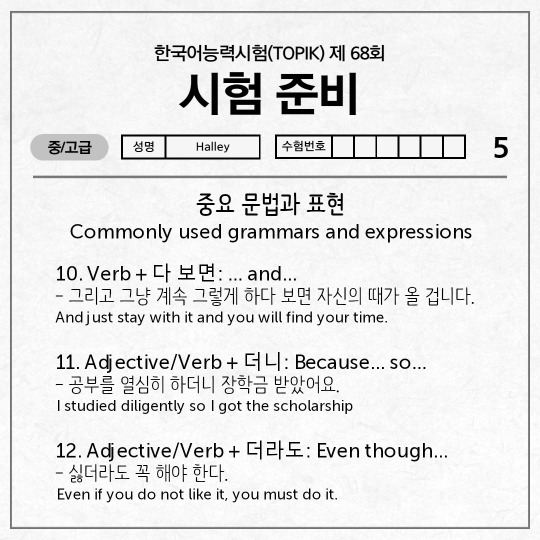
10. Verb + 다 보면: ... and... - 그리고 그냥 계속 그렇게 하다 보면 자신의 때가 올 겁니다. And just stay with it and you will find your time.
11. Adjective/Verb + 더니: Because... so... - 공부를 열심히 하더니 장학금 받았어요. I studied diligently so I got the scholarship.
12. Adjective/Verb + 더라도: Even though... - 싫더라도 꼭 해야 한다. Even if you do not like it, you must do it.
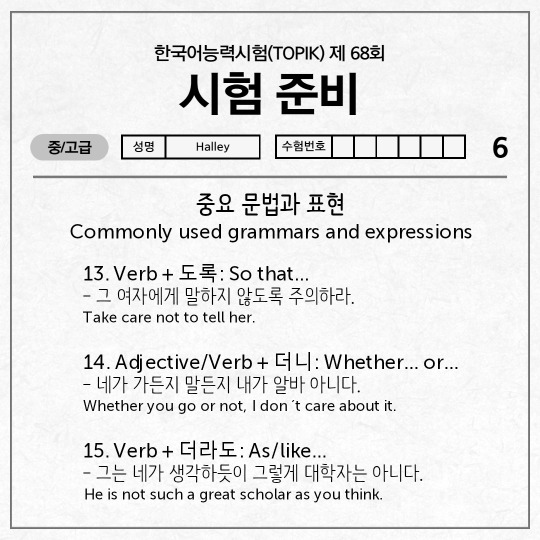
13. Verb + 도록: So that... - 그 여자에게 말하지 않도록 주의하라. Take care not to tell her.
14. Adjective/Verb + 더니: Whether... or... - 네가 가든지 말든지 내가 알바 아니다. Whether you go or not, I don´t care about it.
15. Verb + 더라도: As/like... - 그는 네가 생각하듯이 그렇게 대학자는 아니다. He is not such a great scholar as you think.
#korean#korea#korean language#study korean#korean studies#koreanlangblr#langblr#studyblr#studyinspo#langinspo#koreaninspo#korean vocab#korean vocabulary#korean grammar#vocabulary#grammar#korean english#korean to english#beginner korean#intermediate korean#advanced korean#topik#topik test#topik exam#study topik#study for topik#topik study#korean lesson#korean students#TOPIKStudyingWithHalley
151 notes
·
View notes